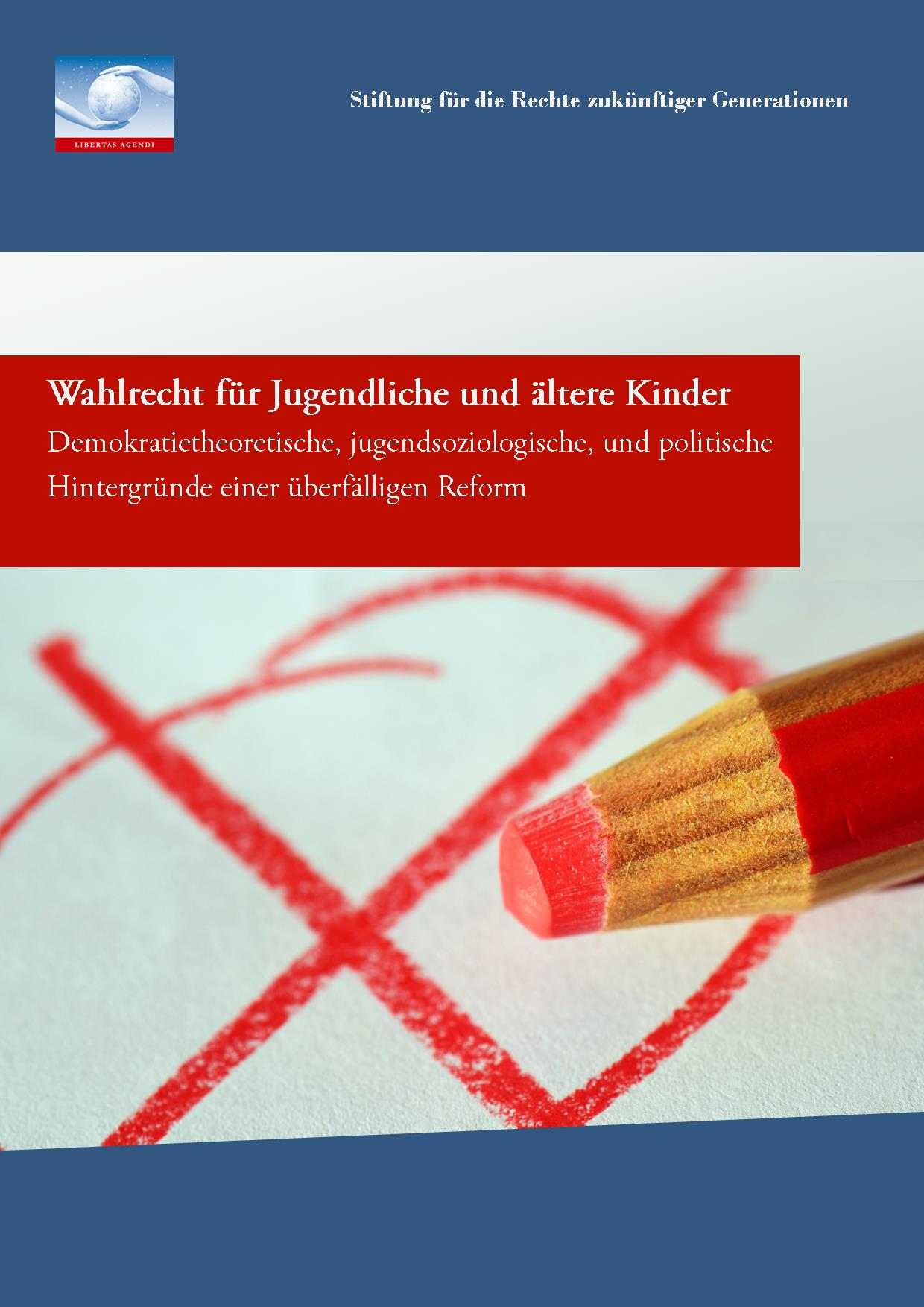
Voting age for children and youth
The German constitution stipulates that all power emanates from its citizens. The immediate possibility to exercise such power, are elections. However, in Germany, the voting age for federal elections as well as most state legislature elections and many municipal elections is 18 years. Hence, an estimated 2 million children and young people, who wish to vote, may not vote until they are 18 years old. That means that a significant part of the German population is exempt from the right to vote and is therefore not allowed to exercise its most important fundamental political right.
However, children and adolescents do have something to say and should therefore have a right to participate at the ballot box. After all, the elected institutions pass laws that which will significantly impact the lives of the current youth beyond the legislative period. A reduction in the voting age is expected to strengthen generational policies, because:
- As the importance of the target group of young voters increases, the topics also shift. Older citizens pursue different socio-political preferences than younger citizens, as scientific studies have shown.
- Older people, especially if they have no children, are much less likely to support an increase in child benefit, tax relief for parents or public child care. For example, a 65-year-old is 85% less likely to support an increase in child benefit than a 20-year-old, and 50% less likely to support more flexible working hours for parents. At the same time, older people are increasingly in favour of a pension policy that burdens the younger generation. There are also good reasons to believe that climate, environmental and nature protection, education and training, media, cultural and network policies would gain weight and be more in line with young people’s views.
- Furthermore, the granting of the right to vote is a signal to young people that they are taken seriously and want to participate in the community. These divergent policy preferences are all the more important the more the German population undergoes demographic ageing.
“We want to vote!”
Children and young people did not have a vote in the 2013 federal elections either. Millions of people in Germany are excluded from voting rights- simply because they are under 18 years of age. Because this violates the principles of democracy and popular sovereignty, the FRFG, together with children and young people, launched the initiative “We want to vote!”.
In 2014, 15 children and young people aged between 10 and 17 filed a complaint with the Federal Constitutional Court to abolish the minimum voting age in order to strengthen democracy and intergenerational justice. They were supported by the FRFG and the children’s initiative Plant-for-the-Planet. The complaint was legally accompanied by the lawyer Prof. Michael Quaas.
The objection was rejected by the Bundestag on May 8, 2014. Subsequently, the FRFG filed an appeal with the Federal Constitutional Court in 2014.
On the occasion of the submission of the constitutional complaint, a press conference was held in Berlin on 15 July 2014 at which SRzG spokespersons Wolfgang Gründinger, Renate Schmidt (former Federal Minister for Family Affairs), Jens Spahn (CDU member of the Bundestag), Felix Finkbeiner (co-plaintiff; Plant-for-the-Planet) and Dr. Lore Maria Peschel-Gutzeit (former Senator for Justice) answered the journalists’ questions.
After long deliberations, the judges dismissed the appeal in April 2016.
FRFG will therefore continue its efforts to reduce the voting age in the run-up to the 2021 federal elections and beyond.



